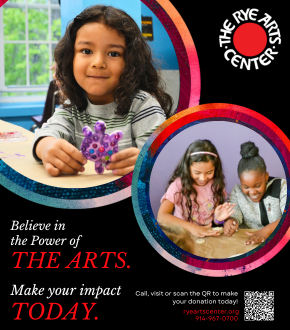30 Ways to help kids and teens practice kindness

By Michele Borba, Ed.D.
Author of UnSelfie: Why Empathetic Kids Succeed in Our All-About-Me World
Kindness is contagious, needs just a small spark to ignite, and spreads quickly. Practicing simple, regular kind acts nurtures empathy, alters behavior, changes a culture, and transforms lives. Kindness is that powerful.
Here’s what I try to keep in mind:
Here are three key takeaways:
First, kindness is strengthened by seeing, hearing, and practicing kindness. The more our children see kindness, the more it becomes contagious and something they want to be part of.
Second, kind acts don’t have to cost a dime, take much time, or require any particular talent. In fact, the easier the task, the more willing kids are to practice kindness.
Finally, kids must have ample opportunities and encouragement to practice kindness. When kids continue doing simple, regular kind acts, other kids will want to do the same.
I’ve included 30 simple ways to help children recognize Kindness Power from my book,
UnSelfie: Why Empathetic Kids Succeed in Our All About Me World. Print them and post them on your refrigerator or classroom door. Then encourage your children to add kind deeds to the list. Or even better, brainstorm your own list as a family or class. Then encourage your children to do at least one kind deed a day until they want to be kind without your prompts or rewards.
• Take treats like cookies to the fire station to let the responders know you are grateful.
• Do a chore for someone without them asking.
• Talk to someone new at school.
• Ask someone sitting alone to play or eat with you.
• Write kind thoughts on the sidewalk or at the playground with chalk.
• Collect used games, books, or toys to donate.
• Write kind words on Post-its and leave them on lockers, walls, or on family members’ pillows.
• Offer to help make dinner.
• Clean a room without being asked.
• Make a homemade gift for someone deserving.
• Smile at five people.
• Open the door for someone.
• Hug your mom or dad.
• Help a younger brother or sister with homework or other tasks.
• Wave and say thank you to the crossing guard, postman, policeman, principal, or whoever else deserves thanks or a happy greeting.
• Let someone go in front of you in line.
• Offer to take the dog (or a neighbor’s dog) for a walk.
• Organize the clothes you don’t wear and put them in a box to donate.
• Give up your seat on the bus, park bench, subway, or train for someone who looks tired.
• Volunteer at any kind of shelter or food bank in your community.
• Find someone you don’t know and introduce yourself.
• Tell someone deserving why they are special or important to you. Be specific.
• Surprise a friend with a small homemade or inexpensive gift.
• Leave an anonymous kind note in a library book for someone to find and enjoy.
• Make sandwiches to give to a homeless person.
• Donate old blankets or dog toys to the local animal shelter.
• Send an apple to your teacher with a note saying why you appreciate her or him.
• Write kind words on rocks and leave them in your backyard, park, or, playground.
• Make an effort to count to 10 or take slow deep breaths when you start to get angry.
• Remember to be kind to yourself so you can be kind to others!
The more kids see, hear, and practice kindness, the more likely they are to adopt it as a habit. Kindness can be strengthened like a muscle. Regular workouts are crucial for it to become habitual.
Remember, acts of kindness must be meaningful and varied to reap gains.
30 formas de ayudar a niños y adolescentes a practicar la amabilidad
La amabilidad es contagiosa, solo necesitas una pequeña chispa para encenderla y se propaga rápidamente. La práctica de actos simples fomenta la empatía, cambia una cultura y transforma vidas. La amabilidad es así de poderosa.
Aquí hay tres puntos clave:
Primero, la bondad se fortalece al verla, escucharla y practicarla. Cuanto más ven los niños la bondad, más se vuelve contagiosa y algo de lo que quieren ser parte.
En segundo lugar, los actos de amabilidad no tienen que costar dinero, tomar tiempo, ni requerieren ningún talento en particular. De hecho, cuanto más simple la tarea, más dispuestos están los niños a practicar la bondad.
Finalmente, los niños deben tener amplias oportunidades y estímulos para practicar la amabilidad. Cuando los niños continúan haciendo actos simples y amables, otros niños querrán hacer lo mismo.
He incluido 30 formas simples para ayudar a los niños a reconocer el Poder de la Bondad de mi libro,
UnSelfie: Why Empathetic Kids Succeed in Our All About Me World. Imprímelos y cuélgalos en tu refrigerador o en la puerta del aula. Luego, alienta a tus hijos a agregar obras amables a la lista. O incluso mejor, haz una lluvia de ideas sobre su propia lista como familia o clase. Luego, alientalos a que hagan al menos una acción amable al día hasta que quieran ser amables sin ser indicados o recompensados.
- Lleva golosinas como ser galletas a la estación de bomberos para que ellos sepan que estás agradecido.
- Ayuda a alguien sin que te lo pidan.
- Habla con alguien nuevo en la escuela.
- Pídele a alguien sentado solo que juegue o coma contigo.
- Con tiza, escribe lindos pensamientos en la acera o en el patio de juegos.
- Junta juguetes o libros usados para donar.
- Escribe palabras amables en Post-it y déjalos en los casilleros, paredes o en las almohadas de los miembros de tu familia.
- Ofrécete a ayudar a preparar la cena.
- Limpia la habitación sin que te lo pidan.
- Haz un regalo casero para alguien que lo merezca.
- Sonríe a cinco personas.
- Abre la puerta a alguien.
- Abraza a tu mamá o papá.
- Ayuda a un hermano o hermana menor con los deberes u otras tareas.
- Saluda y da las gracias al guardia de cruce, al cartero, al policía, al director o a quien más se merezca un saludo feliz.
- Deja que alguien vaya delante de ti en la fila.
- Ofrece pasear al perro (o al perro de un vecino).
- Organiza la ropa que no usas y ponla en una caja para donar.
- Entrega tu asiento en el autobús, el banco del parque o el bus a alguien que parezca cansado.
- Se voluntario en cualquier tipo de refugio o banco de alimentos en tu comunidad.
- Busca a alguien que no conozcas y preséntate.
- Dile a alguien merecedor por qué es especial o importante para ti. Se específico.
- Sorprende a un amigo con un pequeño obsequio casero o económico.
- Deje una nota anónima en un libro de la biblioteca para que alguien la encuentre y disfrute.
- Haz sándwiches para dar a una persona sin hogar.
- Dona mantas viejas o juguetes para perros al refugio de animales local.
- Regala una manzana a tu maestro con una nota de por qué lo aprecias.
- Escribe palabras amables en rocas y déjelas en tu patio trasero, parque o patio de juegos.
- Haz un esfuerzo para contar hasta 10 o respirar lento y profundo cuando comiences a enojarte.
- ¡Recuerda ser amable contigo mismo para que puedas ser amable con los demás!
Mientras más los niños ven, escuchan y practican la bondad, más probabilidades tendrán de adoptarla como un hábito. La bondad se puede fortalecer como un músculo. Los entrenamientos regulares son cruciales para que se vuelva algo habitual.
Recuerda, los actos de bondad deben ser significativos y variados para cosechar ganancias.




